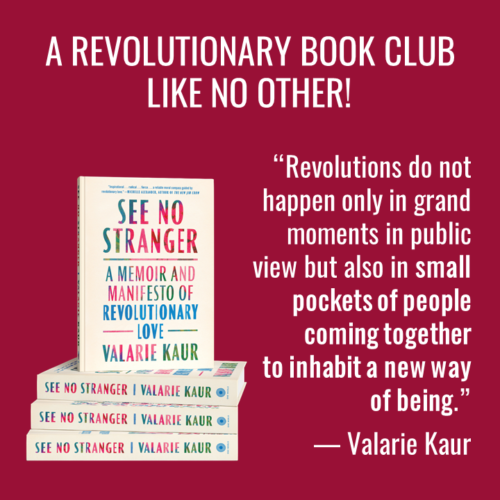Steve Harrington is the unofficial mom of Stranger Things, and there’s no sign more protective, nurturing and maternal than Cancer. Steve is always weighing decisions based on whether or not it. Clemson No Stranger to QB Depth Concerns With Taisun Phommachanh going down with an achilles injury in the spring game, Clemson's quarterback depth now faces serious questions as the team heads. The first practice – See no stranger. All the great wisdom traditions of the world carry a vision of oneness, the idea that we are interconnected and interdependent, that we can look upon the face of anyone and say as a spiritual declaration and a biological fact, “You are a part of me I do not yet know.”.
But in See No Stranger, Valarie Kaur cuts straight to the heart and the body – specifically, the womb – as the foundation for her framework of revolutionary love as the sword and the shield needed to stay in the work of fighting for a better world. Author, attorney, and filmmaker Valarie Kaur kicked off a new series from Cornell United Religious Work on March 22, 2021. Kaur spoke about her book, 'See No Stranger,' and invited attendees to consider what spiritual dispositions, humanizing practices, and interpersonal skills might help us meet this profound moment of social change.
Snack Bar
See No Stranger: An Evening with Valarie Kaur
March 22, 2021, Virtual Event 7:00 p.m.

Click here to register
Valarie will speak about her book See No Stranger, and invite us to consider what spiritual dispositions, humanizing practices, and interpersonal skills might help us meet this profound moment of social change.
You might enjoy
Original whale song recordings by Roger Payne PhD ’61
March 25, 2021
Take a wellness break with Big Red and Arthur
Praat analysis. April 23, 2021
“I was part of this generation of Sikh advocates who had this frame that if the nation only knew who we were, then it would be enough, then it would stop this tide of hate,” Valarie Kaur tells Observer on a phone call, not trying to hide the pain in her voice. “But knowing is not enough. We have to be agents of revolutionary love.”

Kaur’s new memoir, See No Stranger, is an account of her effort to learn, teach, and live that ethic. Her family’s story in America, she writes, starts with her paternal grandfather, Kehar Singh, or Bab Ji, who came to the United States in 1913 and was immediately imprisoned in line with the country’s racist immigration policies. A white immigration attorney, Henry Marshall, filed a writ of habeas corpus on his behalf and he was released. He became a farmer in California’s central valley, where her family has lived since. If Marshall had seen her grandfather as a stranger, Kaur writes, she would not have even been born.

SEE ALSO: Masha Gessen Maps a Path Beyond Trump in ‘Surviving Autocracy’
Growing up “one hundred years after Baba Ji made America home,” Kaur writes, “I thought that all of our hardest battles were behind us.” But 9/11 disabused her of that notion. Product key office 365 gratis. Following the terrorist attacks on New York and Washington D.C., hate crimes and assaults on Sikh people skyrocketed.
Balbir Singh Sodhi, a gas station owner who was a friend of Kaur’s family, was the first person murdered in a hate crime after the attacks. Kaur began criss-crossing the country to interview and film Sikh survivors of hate for the documentary film Divided We Fall: Americans in the Aftermath. “We built our organizations, we developed our media strategies, and we launched campaigns all around this idea that people needed to know the basic tenets of the Sikh faith and needed to know that we’ve been victims,” she told me.
The hope that education might be enough ended for Kaur in 2012, when a shooter killed six people at a Sikh temple in Oak Creek Wisconsin. Most people have not even heard of the Oak Creek shooting; “It disappeared from the nation’s conscience almost as soon as it occurred,” Kaur writes. But Kaur tells the story of the victims and their families, who she knows personally, and of their grief and faith. She also recounts how the Sikhs included the shooter, who killed himself, in their service for the dead.
Revolutionary love is about loving others. But it’s also, Kaur says, about loving one’s enemies. Kaur writes that her maternal grandfather, Papa Ji, explained the Sikh tradition of warrior love. “Love is dangerous business…If you see no stranger, then you must love people, even when they do not love you. You must wonder about them even when they refuse to wonder about you.” The battle is hardest because it is not just waged against one’s enemies, but for them. Kaur talks in the book about how she has worked to understand and love a police officer who badly and deliberately injured her arm in a protest, and a cousin who threatened her with a gun.

“I’ve learned that there’s no such thing as monsters in this world,” she reflects during our conversation. “They’re only people who are wounded who are acting out of their own insecurity or their blindness or their ignorance. And once we get curious about them, even then, we begin to gather the information we need in order to change the conditions that radicalized them. Loving our opponents is not just a moral call. It’s pragmatic, it is strategic. It is how we learn to fight in ways that don’t just resist bad actors or remove bad actors from power, but actually change the systems, institutions, and cultures in which they operate.”
Kaur’s call to return love when met with hatred will provoke resistance, she knows. But she says that in her own life, loving the policeman who hurt her has been easier than loving herself. Perhaps the most painful parts of the book are the discussion of her emotionally abusive relationship with her ex-fianceé, and her maternal grandfather’s rejection of her relationship with her non-Sikh husband. Though he taught her to see no one as a stranger, he had trouble loving and accepting the choices of his own granddaughter. And she had to give herself permission to believe that he was wrong.
See No Stranger Summary
“I think our bodies carry information for what we are ready for, now. So, when I think of certain opponents, if I feel that my body is activated and flushed with rage or flushed with grief, then I know that my job right now is to attend to my own wounds,” she told me. When someone is harming you, she said, it’s not your obligation “to try to wonder about them and try to love them. Your job is your own survival and your own flourishing.”
Part of loving oneself is allowing oneself to feel anger when others harm you, Kaur says. The opposite of love is not anger, but indifference, and though she’s soft-spoken, there is a good deal of rage in her book. “Especially as a woman of color, I was always taught to be ashamed of my rage, to suppress it down inside of me,” she told me “And it took me a long journey, as you read, to understand that my rage carried information, that it showed me that my body and my life were worth protecting, that I had something worth fighting for.”
See No Stranger Amazon
Anger and love are both hard to sustain over two decades, and Kaur admits that the last four years, the pandemic, and ongoing violence have been very difficult for someone who has been advocating for marginalized people since the Bush administration. “I ask every day now, is this darkness in our country the darkness of the tomb or the darkness of the womb? There’s so much cruelty and incompetence in our leadership, it feels like death has won.”
Valarie Kaur Book
But she adds that she’s seen “glimpses of the nation that longs to be born.” Black Lives Matter marches or the activists that clogged airports to protest Trump’s Muslim ban have given her hope. Along with warrior metaphors of rage and battle, she says she returns to metaphors of labor and birth, and a belief that something new and better can come out of the current pain and despair. “How do we show up to the fire and still breathe and push and breathe and push?” she asks, and answers without pausing. “It’s true love.

